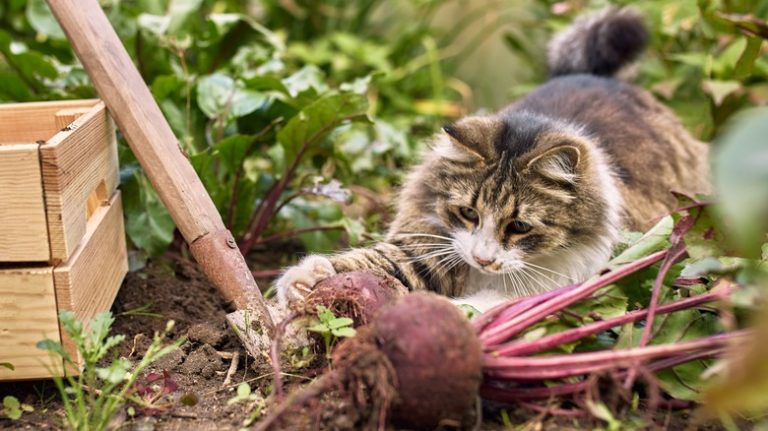Cinnamon is a potent spice, loved for its flavor in cooking and its medicinal benefits in herbal teas. But this popular spice is not so popular in the insect kingdom — which is good news when you want to get rid of pests! Did you know that cinnamon contains an aromatic compound called eugenol, which is also found in traditional insect repellants? Cinnamon oil contains 80 to 88% eugenol, a powerful insecticide believed to kill insects by targeting the nervous system.
One of the benefits of using cinnamon instead of a commercial product to deal with your pest problem is that it doesn’t contain harsh chemicals that may be harmful to pets, kids, and even you! It’s also much cheaper because you probably already have the spice in your kitchen cupboard. Just don’t use cinnamon sugar, which is completely different.
Using cinnamon as an effective DIY home hack to repel insects can be as easy as sprinkling the powdered spice directly in problem areas indoors to make critters promptly march in the opposite direction. Alternatively, you can make a spray for house plants, or to use in your garden, by mixing 2 teaspoons of ground cinnamon powder per 4 cups warm water. Steep the mixture overnight and then strain before adding to a spray bottle. Here are some of the insects that cinnamon is great at warding off.
1. Slugs
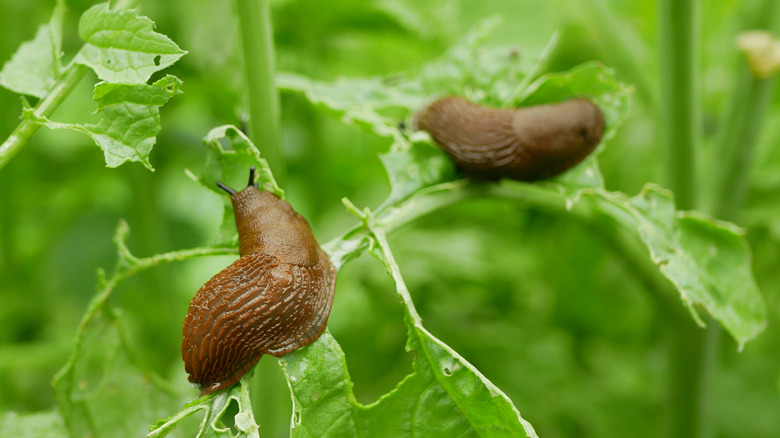
If slugs make you squeamish, you’re not alone! They’re notorious for eating pretty much anything — from pet food and house plants to rotting food in your trash. Slugs are essentially moving garbage cans that may be useful out in nature, but they’re not so desirable in your home or garden. One thing they can’t stand is cinnamon, so you can use this to your advantage. Banish slugs from your garden, and look for signs of their preferred pathways into your home — then intercept with plenty of cinnamon powder or oil to send them on their way.
2. Ants
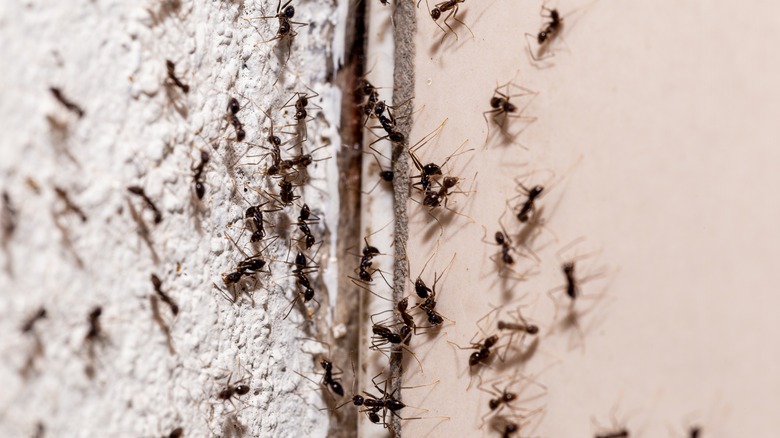
Ants are one of the most common household pests. They send out search parties to look for food and water, and when they find it they send out signals to the rest of the colony to bring food back to the queen. It can be alarming to see so many ants crawling all over your home, but thankfully, you can use cinnamon to keep them out of your house. They hate the smell and inhaling the powder can cause suffocation — find out how they’re getting in, then sprinkle a thick borderline of cinnamon powder to keep them out!
3. Mosquitoes
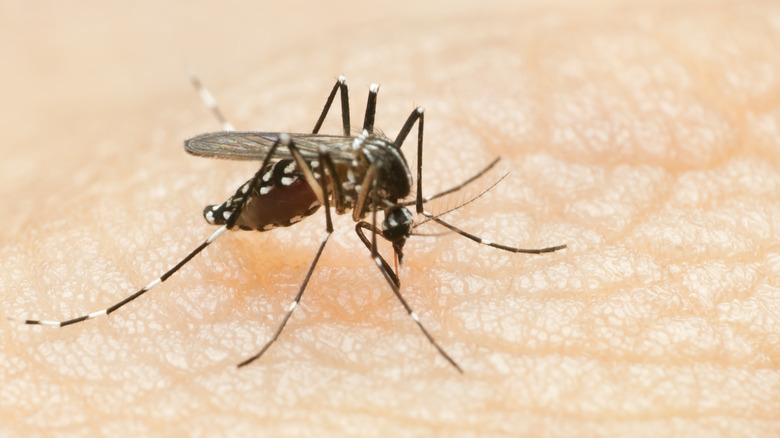
Flubydust/Getty Images
Mosquitoes breeding in your garden or near your house can be very stressful. Getting bitten all the time can feel unbearable in warm weather, especially for young children. Here is where cinnamon oil can be useful, not only to deter mosquitoes but also to kill their eggs. Make a safe cinnamon spray to protect your kids’ skin by repelling these biting pests, and use a more concentrated cinnamon application in places you know the mosquitoes are breeding — often in bins, drains, or around ponds and other water features in your garden.
4. Cockroaches
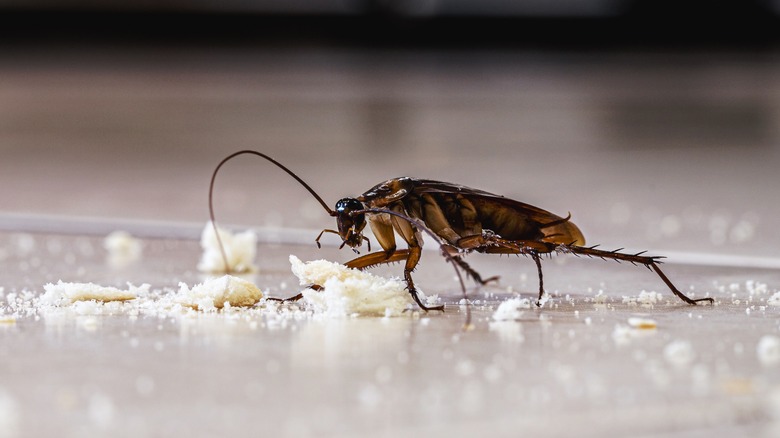
RHJPhtotos/Shutterstock
Most will agree that cockroaches, attracted by food and waste, are totally gross! They can be a serious health risk too, contaminating homes by spreading germs that put you and your family at risk of contracting salmonella and E. Coli. Being nocturnal, you may not spot them during the day, but signs of an infestation may include the discovery of droppings, eggs, shed skins, or unpleasant smells. Keep cockroaches out of your house with cinnamon powder by targeting potential entrances into your kitchen, like window sills and back doors.
5. Wasps
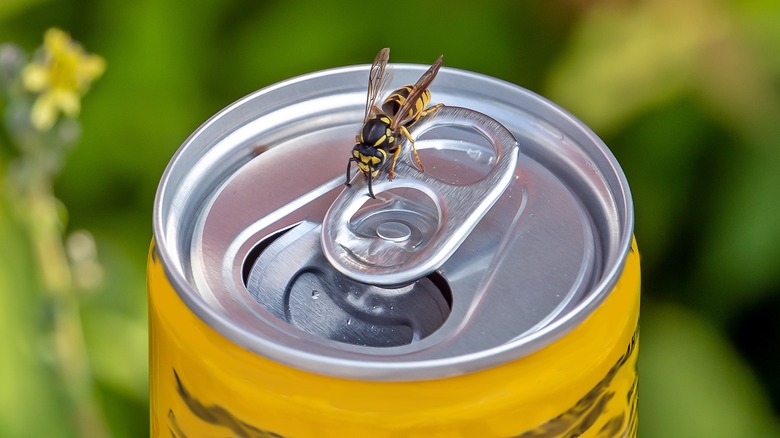
Kleymenov Valery/Shutterstock
Wasps can be a nightmare towards the end of fall if you have a garden and kids. This is because, as working insects, they are made redundant around this time and spend the last few weeks of their lives seeking out sugar highs, which is why they are so attracted to your fizzy drinks and beer bottles. They can get quite aggressive too! You can help to keep wasps far from your yard though, with the help of cinnamon. Just sprinkle, spray, or keep bowls of cinnamon around your garden table where there might be food and drink.
6. Fruit Flies
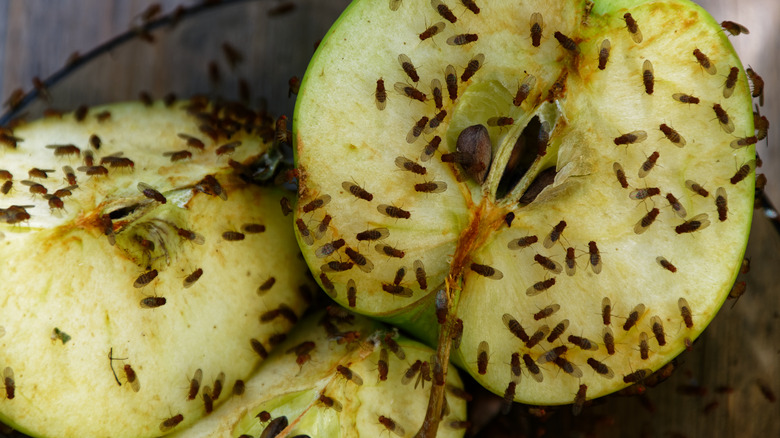
Anne Webber/Shutterstock
Possibly one of the most irritating house pests are fruit flies. Not only are they a nuisance, but they can also lead to food contamination and make you ill. So it’s important to keep fruit flies out of your kitchen. They are attracted by the aroma of ripening fruit, so your fruit bowl could well be the culprit. You can still enjoy having your fruit on display though, just add a few sticks of cinnamon bark in with the fruit. The scent will put them off, and also disrupt the pheromones they secrete to communicate with each other.
7. Spiders
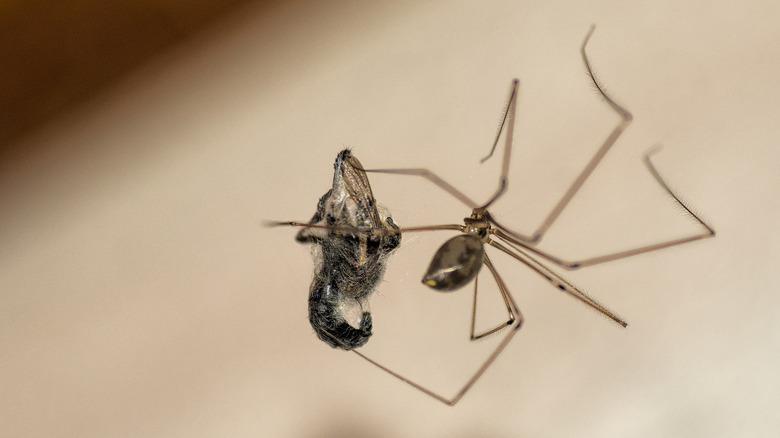
Tomás Zarraga Camiruaga /Getty Images
House spiders aren’t always considered pests. They can help you out by feeding on other common indoor pests, like flies, clothes moths, cockroaches, earwigs, and mosquitos. So you may want to consider leaving them alone to do their job as effective pest controllers. However, not everyone can tolerate spiders and if you have an infestation, you can get rid of spiders with common household staples such as cinnamon. Just sweep away webs and spray cinnamon to repel spiders from rebuilding them. You can also burn cinnamon incense and candles to keep them out, as they hate the smell.
8. Weevils
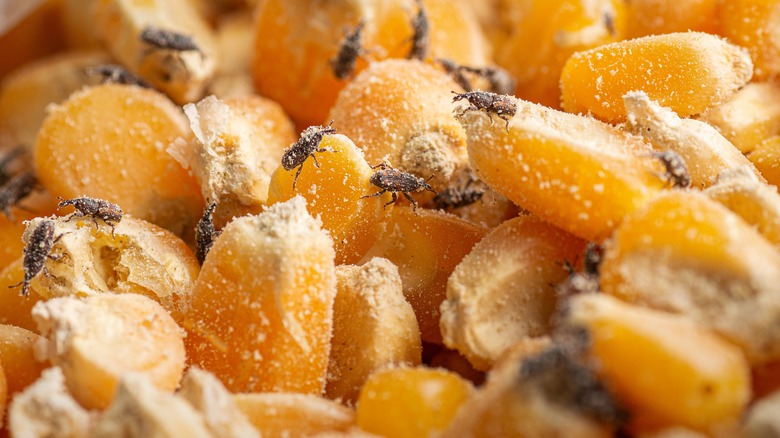
Nuttapong/Shutterstock
If you’re grossed out to find tiny bugs in your flour or other dry goods, you’ve probably discovered weevils. They multiply quickly, burrowing into seeds and grains, and laying eggs inside them before sealing up the opening — horrifying, right? The egg hatches and the larva feeds on the food until it is fully grown. Luckily, there is a simple way to keep weevils out of your home, they hate the potent smell of cinnamon, so store plenty of cinnamon sticks in your pantry alongside your dry goods.
9. Bedbugs
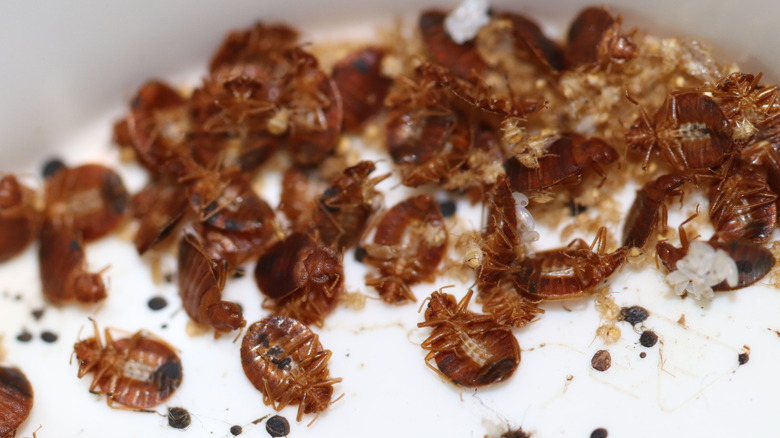
Matteo Lanciano/Getty Images
If you’ve ever experienced a bedbug infestation, that innocent bedtime rhyme will take on a whole new meaning! These little bugs sleep in cracks in wooden floorboards, bed frames, and even inside your mattress. They come out at night and feed on dead skin, biting to extract blood, and leaving extremely itchy welts! They multiply and spread quickly too. To get rid of bedbugs, professional fumigation is best for infestations. But you can stop kids from getting bitten by surrounding beds with cinnamon powder or spraying skin and bed sheets regularly.
10. Onion Thrips
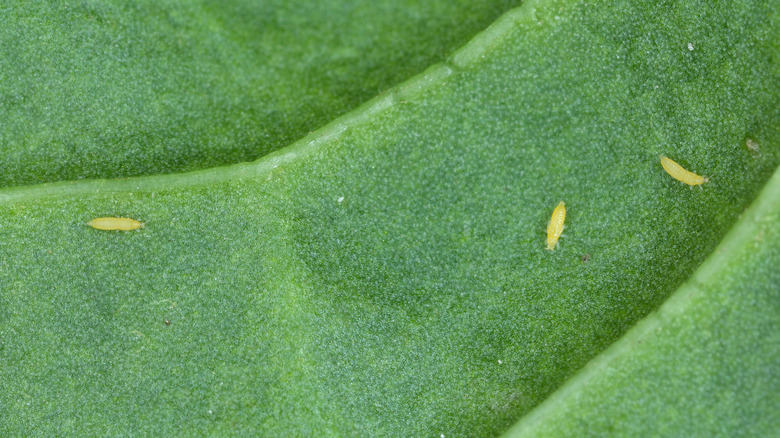
Tomasz Klejdysz/Shutterstock
If you love growing fruit and veg in your garden, thrips are a potential problem. There are many different types of thrips, none of which are desirable in large numbers. Onion thrips are known for causing a white-colored mottling effect on onion and leek leaves, but they also feed on other plants in your garden, including flowers, fruit, and veggies. They can cause discoloration and stunted growth. The good news is that aside from introducing good bugs that’ll chase pests from your garden, cinnamon oil and powder can actually kill thrips, as well as deter them.
11. Silverfish
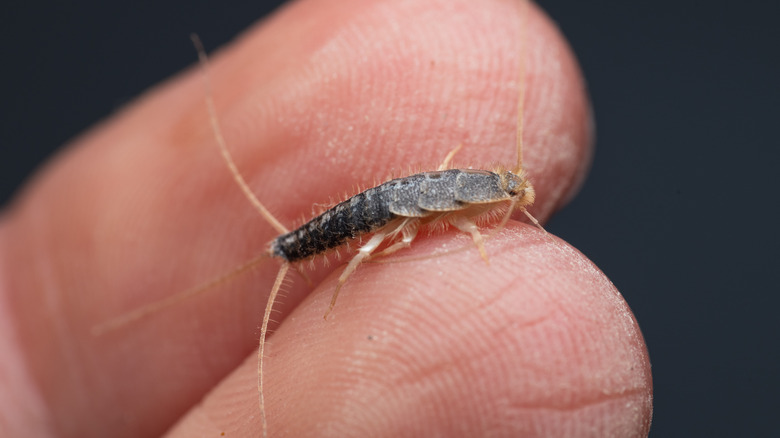
Pedro Luna/Shutterstock
Some people find the odd silverfish to be a fascinating discovery, but they are common house pests, and where there is one, you’ll find more! An infestation can lead to damage to books, wallpaper, carpets, and clothes. Thankfully, you can repel bugs like silverfish naturally with cinnamon. While it won’t actually kill the bugs or their eggs, it works well as a preventative. They like damp places, so target bathrooms and any rooms where there is damp, with cinnamon powder or spray.
12. Peach-Potato Aphids
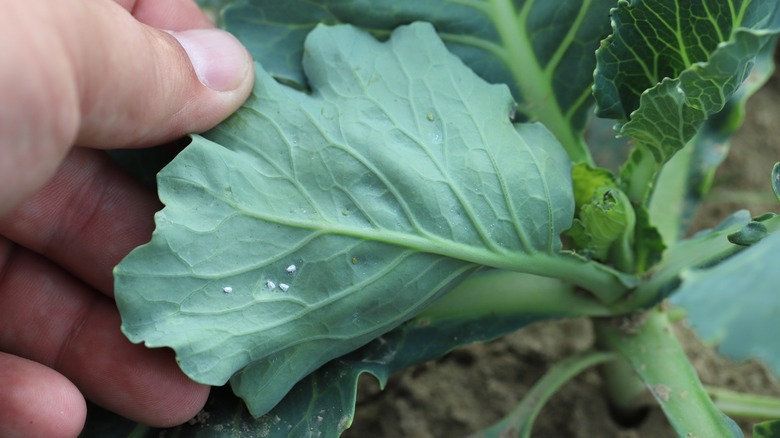
Tomasz Klejdysz/Shutterstock
Large infestations of aphids feeding on sap can cause incredible damage to the leaves and stems of your garden or indoor plants. This damage can cause leaves to curl so that they can’t photosynthesize properly, leading to the death and devastation of your plant collection. You can use cinnamon to fight the problem in a variety of different ways. For example, place the sticks in the soil around your plants and spray diluted cinnamon oil onto the leaves of your plants. Aphids and other harmful pests will steer clear.
13. Houseflies
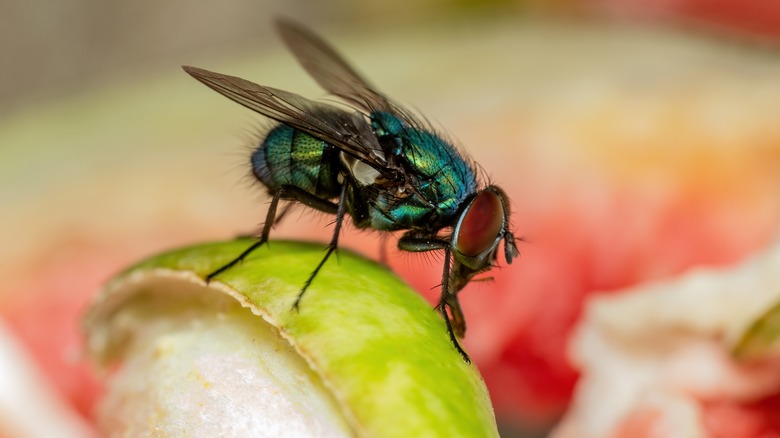
nechaevkon/Shutterstock
Houseflies are really annoying. They buzz around your house, provoking pets, irritating kids, landing on and contaminating food — not pleasant! House flies start off as disease-infested maggots that often breed in garbage bins. Surprisingly, cinnamon and water is the simple solution to keep maggots out of the trash can, repelling flies so that they don’t lay their eggs there in the first place! Plus, burning cinnamon incense sticks around the home will act as a natural house fly repellent.
14. Scorpions
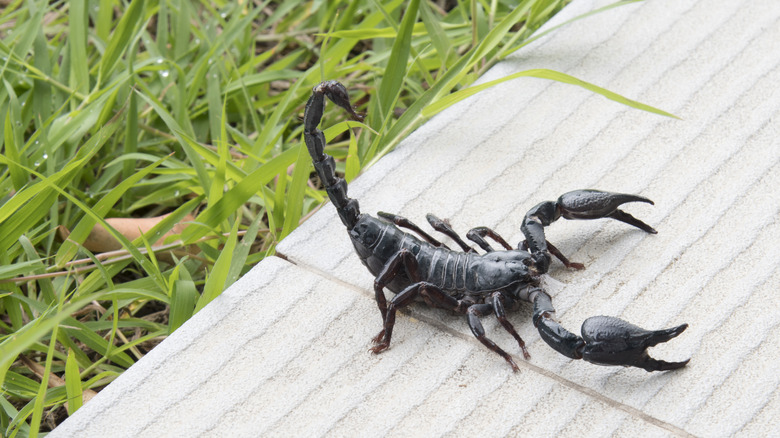
Apisitwilaijit/Getty Images
Scorpions are a distant cousin of the spider, but being several times larger and a lot more feisty, coming across one in your home can be daunting. Prevention is the best cure for this problem. Once you have managed to safely lure one out of your house, make sure it doesn’t come back with its friends by placing cinnamon diffusers around the house and wiping down potential entryways with cinnamon oil.
15. Earwigs
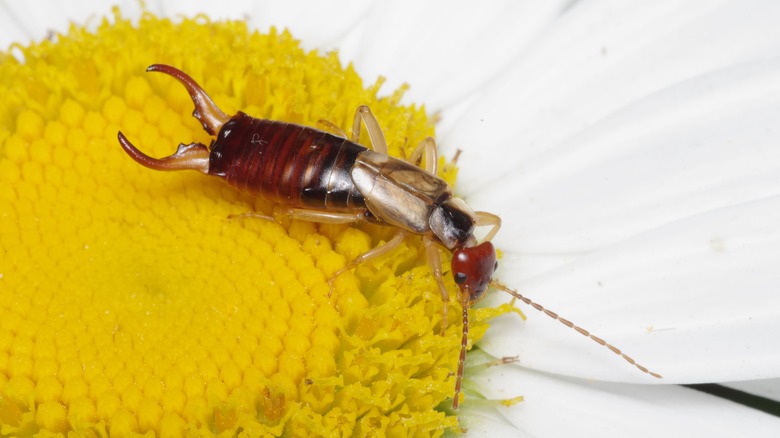
David Peter Ryan/Shutterstock
There’s an old wives’ tale that earwigs crawl into your ear and lay eggs, but this isn’t the real reason they are considered pests. Earwigs in your garden can be beneficial in your compost pile. They are omnivorous and will eat pest insects like aphids, mites, and insect larvae, as well as decaying organic matter. But if you’re not careful they’ll also eat most of your garden flowers and edibles. They don’t like strong smells, so use cinnamon powder or small pieces of cinnamon bark to protect the areas around your favorite plants.
16. Stink bugs
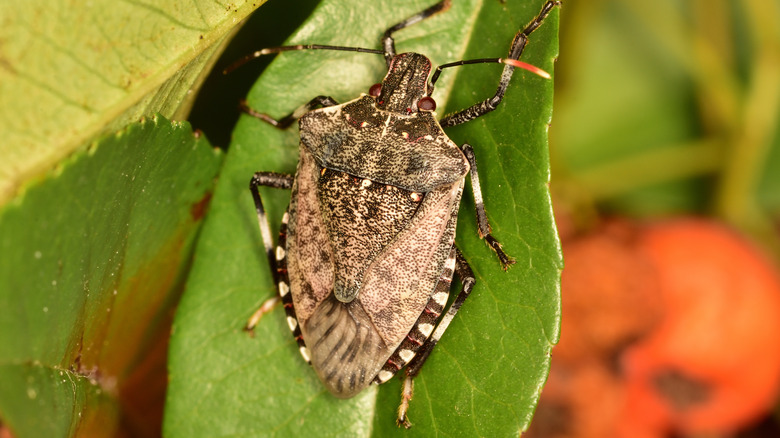
Davide Bonora/Shutterstock
One of the greatest menaces to terrorize your garden space is that of the ovular-shaped stink bug. The invasive species will crawl (or even fly!) into your budding crops and fruit trees and feast off them. While they aren’t dangerous to humans, the impact they can have on your gardening endeavors is more than just a mere nuisance. Despite what their name may imply, stink bugs are very adverse to strong scents, like cinnamon. If you sprinkle a generous helping of ground cinnamon around your plants, this could be enough to really help fight off stink bugs.
17. Rats and mice
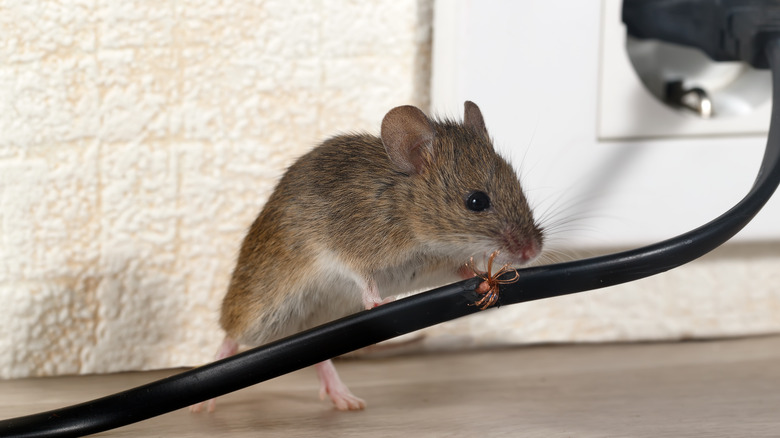
Tenra/Getty Images
Insects aren’t the only pests that hate cinnamon — you can also use this handy DIY natural repellant to discourage unwanted critters, like rats and mice. Rodents are highly sensitive to smells and they can’t tolerate the overpowering scent of cinnamon. Work out the reason you have a pesky rodent problem, and where they’re getting in, then cover those areas with cinnamon powder or spray to turn them back out onto the streets. It’s a humane way to keep them out of your home.



